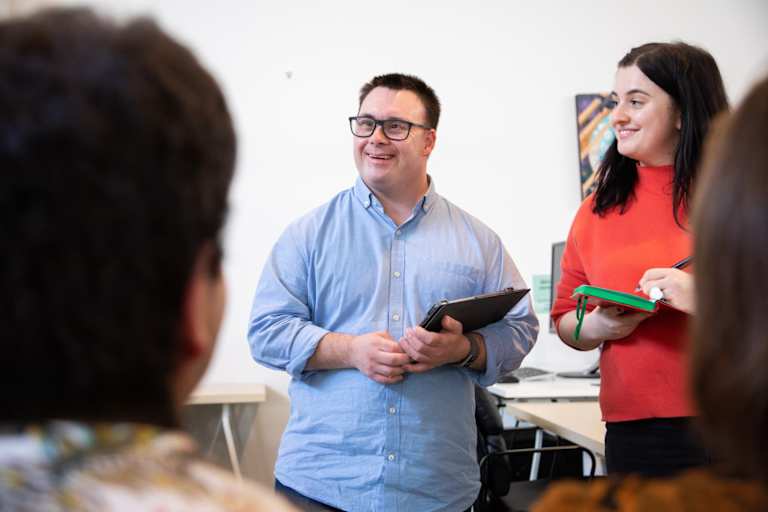Counseling License Requirements in Colorado
If you’re interested in professional counseling, marriage and family therapy, or school counseling, explore Colorado counseling license requirements.Colorado is home to spectacular mountain settings and vibrant urban settings. Amidst the natural beauty and thriving cities, the state also faces pressing mental health care challenges. According to the Colorado Behavioral Health Administration’s 2022-2023 annual report, behavioral health job openings in Colorado increased by 152% between 2019 and 2022.
The Centennial State offers counselors three licensure options for master’s degree-holders and higher-than-average salaries in many parts of the state. Learn about Colorado counseling licensure requirements, potential salaries, and Colorado counseling organizations.
Colorado Counselor Licensure Requirements
Colorado licenses counselors according to the type of counseling they provide. Licensed professional counselors (LPCs) offer counseling and psychotherapy to individuals, groups, couples, and families. LPCs help clients with behavioral, emotional, and mental health issues and are licensed by the Colorado State Board of Professional Counselor Examiners.
Marriage and family therapists help families and couples work through relationship issues and obtain licensure from the Colorado State Board of Marriage and Family Therapist Examiners. The Colorado Department of Education oversees school counselor licensing for professionals who work with K-12 students and advise on academic and social issues.
How Long Does it Take to Become a Counselor in Colorado?
LPCs and MFTs spend 2-3 years earning their master’s degree and two years gaining post-master’s supervised training. It takes 8-9 years to become an LPC or MFT, including the time it takes to complete a four-year bachelor’s degree and pass the necessary exams.
School counselors also need a four-year bachelor’s degree and can expect to spend 2-3 years completing their master’s programs. Licensure also requires an additional year to complete 700 hours of supervised experience and the Praxis exam.
Doctoral degrees take additional time to earn, generally 2-5 years. LPCs and MFTs with a doctorate only need 18 months of post-degree supervised experience.
Out-of-State Licensing Reciprocity in Colorado
LPCs and MFTs who hold licenses in other states can qualify for licensure by endorsement in Colorado. Requirements include a passing score on the relevant national or state examination and two years of practice experience in psychotherapy or professional counseling for graduates of master’s programs (one year for doctorate-holders).
Colorado does not have a formal reciprocity process for school counselors from other states. However, the state does offer flexibility for out-of-state applicants already licensed in another state with equivalent licensure requirements.
How to Renew a Counseling License in Colorado
In Colorado, LPCs and MFTs must renew their licenses in odd-numbered years. Renewal requires continuing professional competency demonstrated by completing 40 professional development hours during each two-year renewal period. LPCs pay a $193 renewal fee and MFTs pay $150.
School counselors in Colorado renew their initial license after three years and then every seven years. School counseling continuing professional competency requires logging 90 hours of continuing education during each renewal cycle and paying a $90 fee.
Salary Expectations for Counselors in Colorado
Colorado counselor salaries rank favorably compared to those in other states and overall wages nationwide. According to 2023 Bureau of Labor Statistics (BLS) data, Colorado’s average salaries exceeded the national average for four of the occupations listed in the table below. The one exception was educational, guidance, and career counselors and advisors.
The Boulder metropolitan area posted the highest average salaries in the state for educational counselors at $70,900, and substance use, behavioral disorder, and mental health counselors at $87,030. Marriage and family therapists earned the highest average salaries in the Denver-Aurora-Lakewood metropolitan area at $75,200.
| Occupation | Average Hourly Salary | Average Annual Salary |
|---|---|---|
| Educational, Guidance, and Career Counselors and Advisors | $30.40 | $63,240 |
| Marriage and Family Therapists | $34.09 | $70,910 |
| Rehabilitation Counselors | $24.90 | $51,800 |
| Substance Use, Behavioral Disorder, and Mental Health Counselors | $29.99 | $62,380 |
| Counselors, All Other | $32.17 | $66,900 |
Professional Organizations for Counselors in Colorado
- Colorado Counseling Association (CCA): A branch of the American Counseling Association, CCA represents counselors and other mental health professionals. Benefits include discounted legal representation and malpractice insurance, a job board, legislative advocacy, and an annual conference. Membership options serve students, working professionals, and retirees.
- Colorado School Counselor Association (CSCA): CSCA supports school counselors at all grade levels, from elementary to post-secondary. Members can join as graduate students, licensed counselors, or retired school counselors. CSCA offers regional meetings, advocacy, discounted professional development opportunities, and ethics counseling.
- Colorado Association of Addiction Counselors (CAAP): As a chapter of the National Association for Addiction Professionals (NAADAC), CAAP offers advocacy, business development, community engagement, education, and training. Members can earn more than 90 credits of online continuing education and receive the NAADAC magazine free of charge.
Frequently Asked Questions About Counseling Licensure
Colorado counseling licensure requirements include a master’s degree in clinical mental health counseling, marriage and family therapy, or school counseling, and post-degree supervised training. Licensure requires a passing score on the applicable exams.


